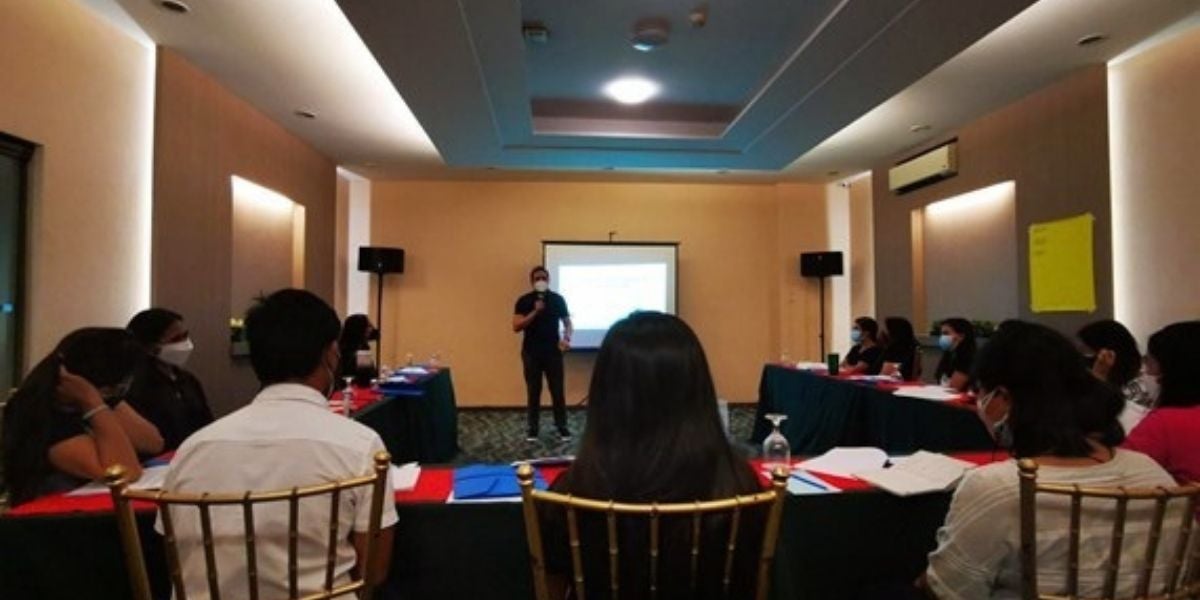
Addressing OSAEC Locally Through Trainings
The prevalence of Online Sexual Abuse and Exploitation of Children (OSAEC) has exponentially increased in recent years, affecting children as young as a few months old, and World Hope International has been working in the Philippines to address it through several projects – PAVE II and OSEC Research and Response. But this work cannot be accomplished alone; local communities as well as caregivers, organisations, and government entities all have a role to play in creating effective change. That is why the World Hope team co-hosted a series of trainings at the end of 2021.
On November 23rd and 24th at the end of last year (2021), World Hope International conducted a Game-Based Cognitive Behavioral Therapy (GBCBT) Training in partnership with the Sexual Violence and Research Initiative (SVRI) and The Salvation Army (TSA). The objective? To help the 14 participants from eight different NGOs understand what GBCBT is, how it works, why it is so significant, and how to properly use it.
After an introduction to the concept of GBCBT. The first session, Rapport Building was then conducted. Here, Ms. Dulawan first explained the objectives for the first sessions. Mr. Cabredo then proceeded with a demonstration on how it is conducted. This includes introduction, skill skit, game demonstration, processing and giving of assignment. The three guidelines were also taught: Be Active, Be Polite, and Be Responsible. Once the demonstration was concluded, Ms. Dulawan gave feedback and practical reminders to the group. She then discussed about the reward system which will be used throughout the sessions.
Since the aim of the training is to teach skills related to GBCBT and group therapy, participants were paired up and are given tasks for demonstrations.
“Healing and recovery can be facilitated better with the use of GB-CBT. Learning can be fun and also structured at the same time,” said Maribel Ardales, a social worker from Hospicio De San Jose, when asked about her takeaways from this training.
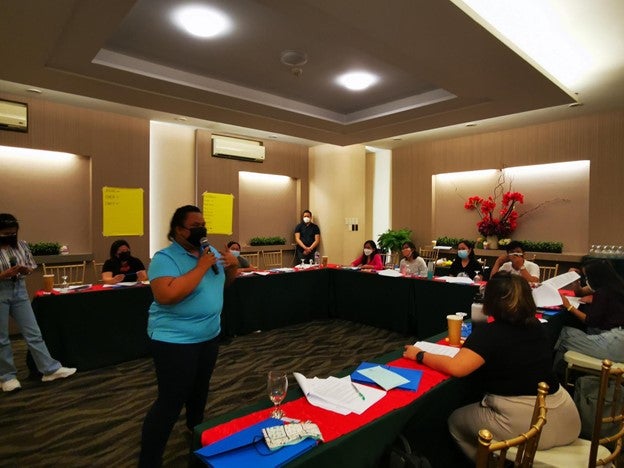
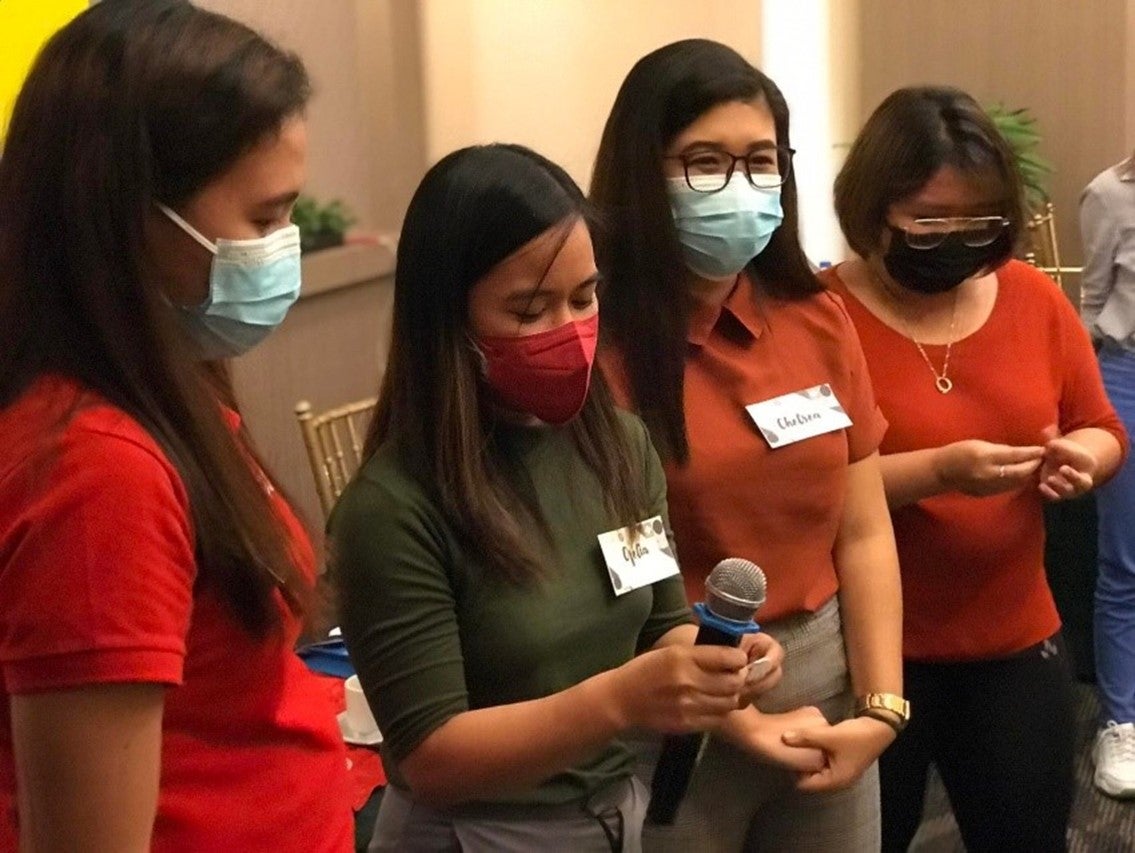
“In this training, I was amazed when I realized that game-based activities are also effective and essential in helping survivors. It broadened my understanding and skills in dealing with our clients. Thank you very much, WHI for this opportunity.”
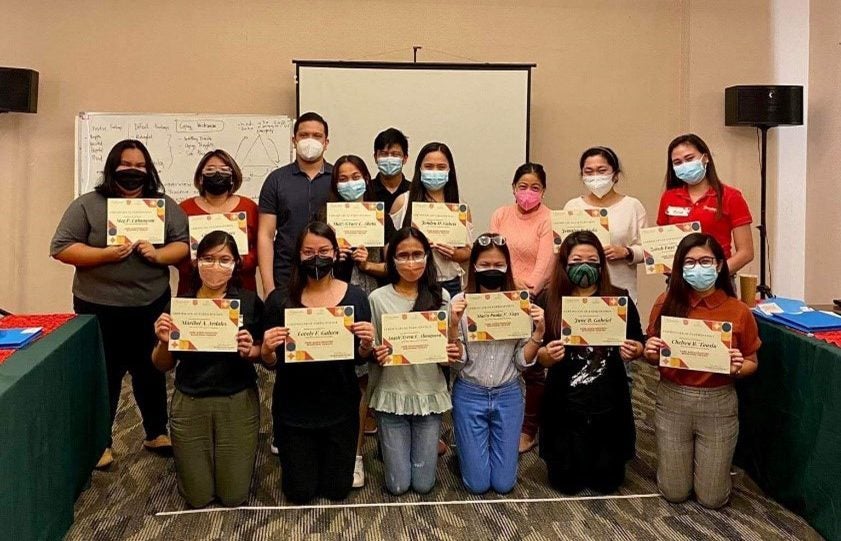
Maribel also added that she was “able to learn a lot without getting bored with the schedule or overwhelmed with the information. The method used, a little discussion then more on practice, and the timing was great. It was also helpful that the group was small enough to allow each to practice.”
In fact, for Maribel the training “was also a breather for us social workers; it was my first time going out for such activity since March 2020.”
SAFE SPACE: Trauma First-Aid Response
- Review of Child Protection (Theresa M. Lape, RSW)
- Trauma and Its Dynamics (Sr. Nida Viovicente)
- Case Management Protocols (Brenda Abilo, RSW)
- Communication Principles when Dealing with Children (Adesty Dulawan-Ting, RPsy)
- Core Action: Look- Creative Strategies to Engage a Child, Establishing Safety and Comfort and Stabilizing a Distressed Child (Adesty Dulawan- Ting, RPsy)
- Core Action: Listen- Gathering Information and Handling Disclosures; Attending the Immediate Needs and Concerns; Core Action: Link- Connecting with Social Support; Linkages to Collaborative Services (Dr. Annabelle G. Maglasang)
- Coping Activities (Adesty Dulawan- Ting, RPsy)
After completing all these sessions on the second afternoon, the participants were for a simulation of what they learned during the two days of training. The role play comprised the whole rescue process highlighting their roles and how they should respond to these cases as barangay front liners using TFAR. Each group was given five minutes to discuss and collaborate with their respective teams and was then given 10 minutes each to present. The presentation demonstrated a heightened knowledge of the referral protocols, like what to do as soon as they have been informed of a case and the need for active listening and empathetic responding.
“The training helped a lot, especially since this is my first time hearing these kinds of abuses (OSAEC). As a community leader, it is my duty to protect the future of the children. I’ve learned through this training, that we need to be more sensitive to traumatized children and do our best to help them. Thank you for this training.”
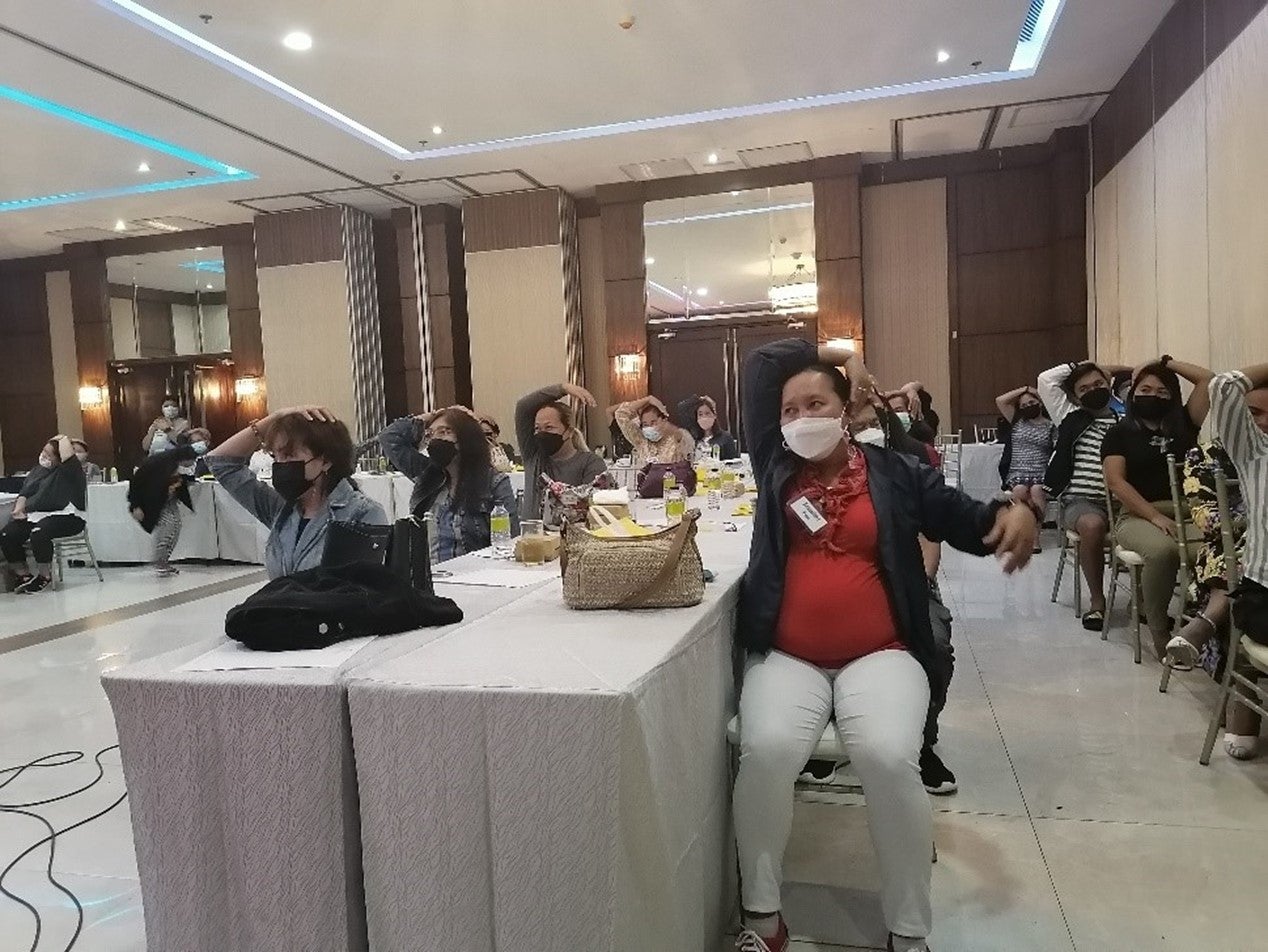
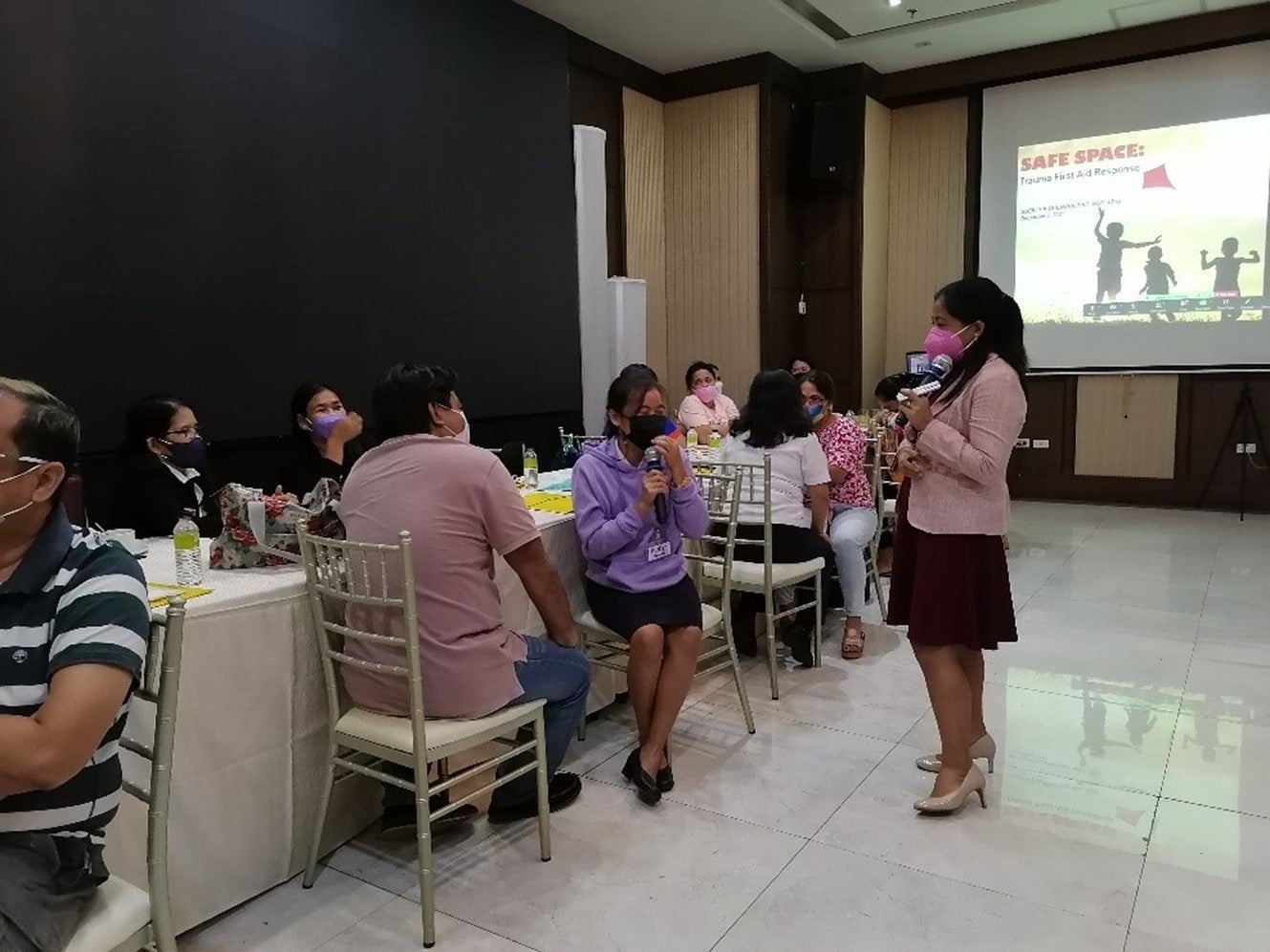
World Hope International firmly believes that the fight against OSAEC requires new thinking, innovative approaches, and first-hand global awareness of the importance of listening to children and their needs.
You can also make a gift today to The Hope Fund, which allows us to work where and when it matters.
